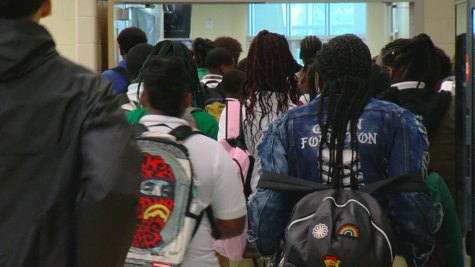
Ben Meyler | Writer
October 18, 2021
For generations, the American school system has taught a curriculum pushing a solely white agenda — one that demeans and overlooks endless cultural differences. Now, in an attempt to enhance the educational learning process for students, all California high schoolers will be required to take ethnic studies in order to graduate. On Friday the 8, Governor Gavin Newson signed educational bill AB 101 that will come into effect starting with the class of 2030, calling for school’s necessary integration of ethnic studies. In California especially — a place referred to by many as a “cultural melting pot” — students’ understanding of other cultures and identities is imperative. With a Latinx population of over 39%, and an ever-increasing diversity rate, California is the perfect place for this education movement to start.
“I’m so glad that California is making high school students take an ethnic studies class,” junior and president of Club Intersect Kayla Mclaughlin said. “I think America as a whole has almost re-written history to make us look good rather than teaching an honest point of view. By adding an ethnic studies class, I think we can all learn the truth about global history.”

This new curriculum will enforce the studies of equality, identity, struggles, and contributions of 4 specific ethnic groups —African American, Chicana/o/x and Latina/o/x, Native American, and Asian American and Pacific Islander studies.
“America is shaped by our shared history, much of it painful and etched with woeful injustice,” Governor Newsom wrote in his signing message. “Students deserve to see themselves in their studies, and they must understand our nation’s full history if we expect them to one day build a more just society.” These teachings will allow for students to grasp a deeper understanding of the untold stories of ethnic groups throughout America.
“I know more about European culture than I do my own,” said senior Donya Nadjie. “I hope that this allows my children and other future generations to learn more about their own cultures along with their classmates.”
This bill will also allow flexibility for schools to adapt their curriculum as they see fit, and to fit the demographics of each individual district.
While this bill is most definitely a step in the right direction, there is always a need for continued modifications and adjustments to ensure a truly unbiased learning experience. There is much pushback from other marginalized groups that feel that important events and experiences are continually brushed over. Many communities feel strongly that the teaching of their histories and tragedies is severely underplayed.
Even with the advancements AB 101 will bring, this bill is only one step in cultivating a brighter future for our education system.

Leave a Reply